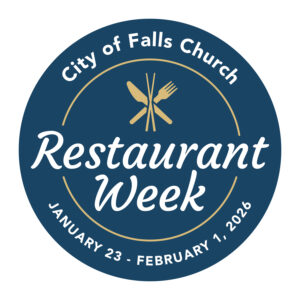Northern Virginia legislators, in a series of exclusive interviews with the News-Press yesterday, concurred with the remarks of Virginia Gov. Tim Kaine, delivered at the conclusion of the Richmond legislative session last week, that President Obama’s massive economic stimulus program has saved 7,100 state jobs in the just-adopted Fiscal Year 2010 budget.
“We were very fortunate that we were able to get enough concrete numbers of what the federal stimulus will bring to Virginia that we were able to fold them into the budget,” State Sen. Mary Margaret Whipple said. She noted that Virginia has a much shorter legislative session than most states, which made getting the federal dollars into the budget that much more timely. State Del. Jim Scott and Del. Bob Hull concurred.
A total of $1.5 billion in federal stimulus is included in the state’s new budget, and a big portion of it is renewable for the following fiscal year, as well, she noted. Other stimulus funds will come to the state’s school systems and directly to local governments, as well. State school systems will get $385 million, with another $127 million for higher education.
The intent of President Obama’s $787 billion “American Recovery and Reinvestment Plan” is both to salvage what would otherwise be job losses in the current recessionary economy, and to create new jobs to jump-start a recovery.
Overall, in the next two years, the goal is to create 99,000 new jobs in Virginia, both at the state and local government levels, and in the private sector.
$800 million of the stimulus dollars added to the budget are derived from the federal government increasing its share of Medicaid costs from a 50 percent match with the state, to a 55 percent match, Whipple noted.
That will kick in on Oct. 1, she said, after the first quarter of the new fiscal year. It will remain in effect for the remaining three quarters of that fiscal year, for all four quarters of the following fiscal year, and first two quarters of the one after that, extending the biggest single source of assistance to the state’s coffers a total of nine quarters out.
The result was that $800 million in state funds were freed up from its Medicaid responsibilities to help save jobs in social service, public safety, education and other programs. The federal stimulus package also provides $217 million of “Revenue Stabilization Funds” for “any purpose” where the state feels the funds need to be allocated to save jobs and programs, Whipple said.
Still, the state budget adopted last week came up $2 billion short from last year, and the inability to deploy federal stimulus and other funds for transportation meant that a total of 1,450 jobs at the Virginia Department of Transportation will be lost, including 1,000 full time jobs. The state is slated to get $210 million for transportation, including $53 million for Northern Virginia.
But some transportation projects, including the reworking of the intersection of Gallows Road and Lee Highway (Rt. 29) in Merrifield, failed to qualify for federal aid because they were not sufficiently “shovel ready” (see story, elsewhere this edition).
Local jurisdictions facing deep deficits due to the global economic downturn are also looking for help from the federal stimulus to come directly to them.
“Thank goodness for President Obama,” Del. Hull exclaimed to the News-Press, words echoed in his column in this edition.
Del. Scott told the News-Press that the passage of federal legislation to provide health insurance for children of low-income families, which came prior to the approval of the stimulus package, was the first big boost to Virginians coming out of the new Washington administration.
The so-called “S-CHIP” (State Children’s Health Insurance Plan) law, providing a two-for-one federal share for insuring low income children and their families, provided huge relief to the state budget, Scott said.
Whipple said that the passage of legislation implementing a comprehensive smoking ban in the state caused her great joy. She said she’d championed the cause since first entering the state legislature in 1996.
Growing public pressure, she said, compelled the House leadership to allow the issue to be voted on by the entire House of Delegates, rather than killed in a Republican-controlled subcommittee, as had been the pattern for years.
Once on the floor, it passed by a wide margin, she said, attributable in part, she said, to her relentless pursuit of the issue for more than a decade, and Gov. Kaine’s solid support for it. “It is clearly a public health issue,” she told the News-Press. “Studies show that there are over a thousand deaths a year in Virginia due to exposure to second-hand smoke.”












